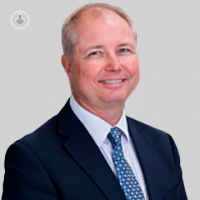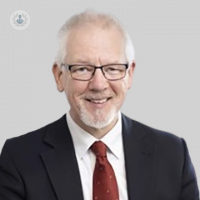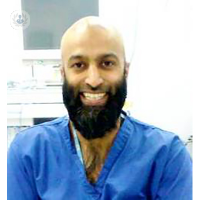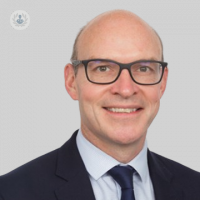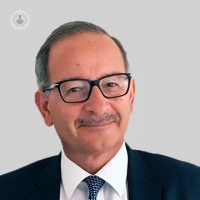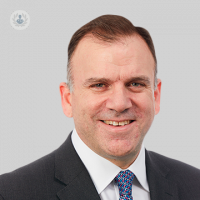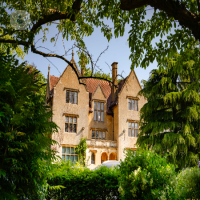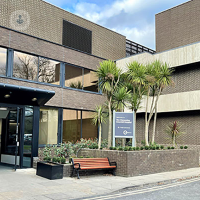What is rotator cuff surgery?
The rotator cuff is a group of tendons and muscles that keeps the upper arm bone (humerus) in the socket of the shoulder blade. Sometimes, the rotator cuff can be torn, which can cause pain, limited motion, and weakness.
If the tear is particularly bad or non-surgical methods have failed to repair the rotator cuff, then surgery will be recommended. Rotator cuff surgery is performed by experienced orthopaedic surgeons.

Why would you need rotator cuff surgery?
Surgery is required if non-surgical methods have failed, or if the tear is very bad. Rotator cuff tears can be partial (just some of the tendon fibres are torn) or full (the tendon is completely torn). The rotator cuff can be torn when playing sports, such as tennis or cricket, or through physical activities, or through general wear and tear over time. Traumatic injury can also tear your rotator cuff as well.
What does rotator cuff surgery involve?
Rotator cuff surgery involves:
- Fragments of tendon and other debris are removed from the shoulder joint.
- Sometimes bone needs to be shaved down to allow for more room for the rotator cuff to move around without being pinched.
- The torn tendon is sewn together and to the top of the humerus.
Surgery can be performed either:
- By arthroscopy where an arthroscope is inserted through a small incision through which the surgery is performed using a video monitor.
- By open surgery, for more complicated tears. A larger incision is made and the muscle is carefully moved to the side to allow for the repair to be made.
How should I prepare for rotator cuff surgery?
In the weeks running up to surgery, certain medications will have to be stopped. It is also important to prepare your house so that everything you need during recovery is easily accessible (not on high shelves). On the day of surgery, eating and drinking will have to be stopped, on instruction from your surgeon and care team.
What does recovery from rotator cuff surgery entail?
Pain following surgery will be managed with rest and painkillers. You will wear a sling following surgery as well. Throughout recovery you will need to have physical therapy to ensure the rotator cuff heals properly. Movement exercises can begin as soon as a couple of days following surgery. After six to eight weeks following rotator cuff surgery, active exercise with shoulder movements can be performed, depending on how bad the rotator cuff tear was. You can expect to return to regular activities after several months.
03-13-2018 07-19-2023Rotator cuff surgery
Mr Andrew Chambler - Orthopaedic surgery
Created on: 03-13-2018
Updated on: 07-19-2023
Edited by: Conor Lynch
What is rotator cuff surgery?
The rotator cuff is a group of tendons and muscles that keeps the upper arm bone (humerus) in the socket of the shoulder blade. Sometimes, the rotator cuff can be torn, which can cause pain, limited motion, and weakness.
If the tear is particularly bad or non-surgical methods have failed to repair the rotator cuff, then surgery will be recommended. Rotator cuff surgery is performed by experienced orthopaedic surgeons.

Why would you need rotator cuff surgery?
Surgery is required if non-surgical methods have failed, or if the tear is very bad. Rotator cuff tears can be partial (just some of the tendon fibres are torn) or full (the tendon is completely torn). The rotator cuff can be torn when playing sports, such as tennis or cricket, or through physical activities, or through general wear and tear over time. Traumatic injury can also tear your rotator cuff as well.
What does rotator cuff surgery involve?
Rotator cuff surgery involves:
- Fragments of tendon and other debris are removed from the shoulder joint.
- Sometimes bone needs to be shaved down to allow for more room for the rotator cuff to move around without being pinched.
- The torn tendon is sewn together and to the top of the humerus.
Surgery can be performed either:
- By arthroscopy where an arthroscope is inserted through a small incision through which the surgery is performed using a video monitor.
- By open surgery, for more complicated tears. A larger incision is made and the muscle is carefully moved to the side to allow for the repair to be made.
How should I prepare for rotator cuff surgery?
In the weeks running up to surgery, certain medications will have to be stopped. It is also important to prepare your house so that everything you need during recovery is easily accessible (not on high shelves). On the day of surgery, eating and drinking will have to be stopped, on instruction from your surgeon and care team.
What does recovery from rotator cuff surgery entail?
Pain following surgery will be managed with rest and painkillers. You will wear a sling following surgery as well. Throughout recovery you will need to have physical therapy to ensure the rotator cuff heals properly. Movement exercises can begin as soon as a couple of days following surgery. After six to eight weeks following rotator cuff surgery, active exercise with shoulder movements can be performed, depending on how bad the rotator cuff tear was. You can expect to return to regular activities after several months.
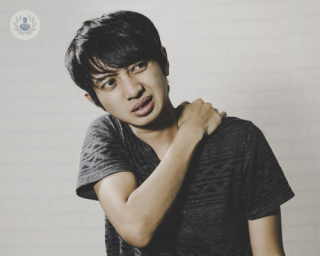

When is surgery required for a rotator cuff injury?
By Mr Ankit Desai
2024-11-20
Rotator cuff injuries are common shoulder problems that can range from mild inflammation to severe tears requiring surgical intervention. Leading consultant orthopaedic surgeon specialising in shoulder, elbow, and upper limb conditions Mr Ankit Desai aims to provide insight into when surgery becomes necessary for a rotator cuff injury. See more


How to treat a rotator cuff tear
By Mr Phil Wright
2024-11-20
Rotator cuff tears can cause worsening pain, usually felt on the deltoid. In this article, Mr Phil Wright, clarifies other warning signs of the condition and highlights what the average recovery time is from rotator cuff repair surgery. We also discuss non-surgical treatment options such as steroid injections and whether they are efffective. See more
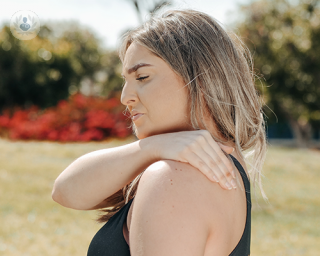

What to expect with rotator cuff surgery
By Mr Daniel Neen
2024-11-19
Rotator cuff tears are a common source of shoulder pain and discomfort among adults. In the UK alone, more than 10,000 rotator cuff surgeries are performed each year to treat these tears. Here to provide an expert insight into rotator cuff surgery, including its success, complications and recovery time, is Mr Daniel Neen, renowned consultant trauma and orthopaedic surgeon. See more


Repairing the rotator cuff
By Mr Dimitrios Karadaglis
2024-11-19
Rotator cuff tears can occur naturally with age, with a 40 per cent chance that a tear will occur when you’re 80 years of age or older (often asymptomatic). They also occur as a result of an injury. We asked shoulder and elbow surgeon Mr Dimitrios Karadaglis about rotator cuff tears and their recovery. See more
Experts in Rotator cuff surgery
-
Mr Simon Lambert
Orthopaedic surgeryExpert in:
- Shoulder instability
- Arthritis
- Rotator cuff surgery
- Rotator cuff injury
- Shoulder surgery
- Shoulder replacement
-
Mr Ziali Sivardeen
Orthopaedic surgeryExpert in:
- Shoulder dislocation
- Rotator cuff surgery
- Frozen shoulder
- Elbow arthroscopy
- ACL reconstruction
- Meniscus
-
Mr Andrew Sankey
Orthopaedic surgeryExpert in:
- Shoulder replacement
- Rotator cuff surgery
- Shoulder instability
- Shoulder arthroscopy
- Sternoclavicular joint
- Fractured shoulder
-
Mr Ali Al-Sabti
Orthopaedic surgeryExpert in:
- Shoulder arthroscopy
- Rotator cuff surgery
- Rotator cuff injury
- Arthroscopic subacromial decompression
- Shoulder replacement
- Shoulder surgery
-
Mr Mark Falworth
Orthopaedic surgeryExpert in:
- Shoulder arthroscopy
- Shoulder replacement
- Elbow replacement
- Shoulder surgery
- Shoulder dislocation
- Rotator cuff surgery
- See all

Bath Clinic - part of Circle Health Group
Bath Clinic - part of Circle Health Group
Claverton Down Road, Combe Down, Bath BA2 7BR
No existe teléfono en el centro.
By using the telephone number provided by TOP DOCTORS, you automatically agree to let us use your phone number for statistical and commercial purposes. For further information, read our Privacy Policy
Top Doctors

Dundee Outpatient Centre - part of Circle Health Group
Dundee Outpatient Centre - part of Circle Health Group
Heal Physiotherapy, 14 Dudhope Street, Dundee DD1 1JU
No existe teléfono en el centro.
By using the telephone number provided by TOP DOCTORS, you automatically agree to let us use your phone number for statistical and commercial purposes. For further information, read our Privacy Policy
Top Doctors

The Clementine Churchill Hospital - part of Circle Health Group
The Clementine Churchill Hospital - part of Circle Health Group
Sudbury Hill, Harrow HA1 3RX
No existe teléfono en el centro.
By using the telephone number provided by TOP DOCTORS, you automatically agree to let us use your phone number for statistical and commercial purposes. For further information, read our Privacy Policy
Top Doctors
-
Bath Clinic - part of Circle Health Group
Claverton Down Road, Combe Down, Bath BA2 7BR, BathExpert in:
- Clinical analysis
- Cancer
- Breast Cancer
- Prostate Cancer
- Cardiology
- Cataracts
-
Dundee Outpatient Centre - part of Circle Health Group
Heal Physiotherapy, 14 Dudhope Street, Dundee DD1 1JU, DundeeExpert in:
- General Surgery
- Orthopaedic surgery
- Physiotherapy
- Shoulder and elbow
- Urology
-
The Clementine Churchill Hospital - part of Circle Health Group
Sudbury Hill, Harrow HA1 3RX, West LondonExpert in:
- Abdominal ultrasound
- Abdominoplasty
- Acne
- Allergies bronchopulmonary
- Allergies nose and ears
- Allergy Dermatitis
- See all
- Most viewed diseases, medical tests, and treatments
- Joint pain
- Lumbar herniated disc
- Spinal surgery
- Minimal access surgery (keyhole surgery)
- Shoulder pain
- Osteoporosis
- Botulinum toxin (Botox™)
- Abnormal gait
- Shoulder osteoarthritis
- DEXA scan
